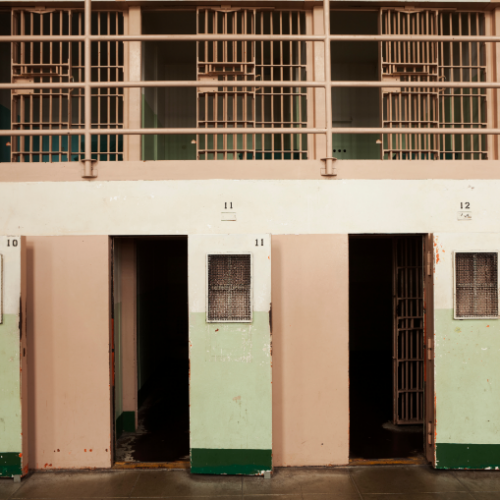DC Policymakers, Employers, and Community Leaders Discuss the Hiring of Individuals with Criminal Records
Each year, 8,000 individuals leave prison or jail and return to their communities in Washington, DC. Within three years, though, about half of them will be reincarcerated.[1] Studies show that having a stable job after release from incarceration can reduce recidivism. Yet a 2011 survey of 550 formerly incarcerated people in DC found that 46 percent of them reported being unemployed.[2]
 With these issues in mind, on September 17, 2014, DC-area policymakers, employers, and community leaders convened for an event—“Hiring People with Criminal Records Makes Sense,” hosted by the Council for Court Excellence[3]—to discuss local policies around hiring individuals with criminal records.
With these issues in mind, on September 17, 2014, DC-area policymakers, employers, and community leaders convened for an event—“Hiring People with Criminal Records Makes Sense,” hosted by the Council for Court Excellence[3]—to discuss local policies around hiring individuals with criminal records.
Employers talked about how hiring formerly incarcerated people can benefit the business community. Thomas Penny, general manager of the Courtyard by Marriot Convention Center in downtown DC, said that “returning citizens tend to be more serious about” their employment. “They want a job,” Penny said. “They understand they don’t have too many opportunities.”
Kenneth Glover, a human resources representative at the construction company Miller & Long, noted that he’s been successful recruiting and training individuals with criminal records for his company. Glover, himself formerly incarcerated, said he understands the challenges of finding employment. “We need companies to give these guys opportunities,” he said. “I was afforded that opportunity, and the best thing I did was I ran with it.”
Other community leaders and policymakers discussed local legislation related to hiring people with criminal records. DC Council Chairman Phil Mendelson talked about reforms passed in 2012 that reduce barriers to employment—e.g., the creation of a program that issues a “certificate of good standing” to formerly incarcerated individuals who haven’t been convicted of new a crime and have no pending charges. A job applicant can show this certificate to potential employers as evidence of his or her successful reentry. The District also passed the Fair Criminal Record Screening Act of 2014, popularly known as “Ban the Box,” which removes questions about criminal history from initial job applications.
Todd Cox, director of the Office of Communications and Legislative Affairs for the U.S. Equal Employment Opportunity Commission, explained to the event’s attendees the responsibilities and rights of employers when considering hiring individuals with criminal records (per Title VII of the Civil Rights Act of 1964). An employer can protect himself or herself from violating the law, Cox said, by not making “a decision based on arrest record alone.” Employers should also ask questions about a criminal record later in the hiring process, allowing individuals to have “the opportunity to explain their records and what happened,” Cox said.
The event wrapped up with the director of DC’s Office on Returning Citizen Affairs, Charles Thornton, encouraging business leaders to build relationships with faith-based, community, and government organizations that provide screening and training services for formerly incarcerated people. “This is not just a social service,” Thornton said. “This is about increasing your bottom line.”
This discussion in DC was part of the growing conversation across the country between business leaders and policymakers about improving employment outcomes for individuals with criminal records. It was modeled after a June 2014 event at the White House and inspired by “State Pathways to Prosperity,” an initiative of the Council of State Governments, which is supported by the CSG Justice Center’s Reentry and Employment project.
To learn more about the DC event, click here.
_____________________________________________________________________
[1] The Council for Court Excellence, Unlocking Employment Opportunity for Previously Incarcerated Persons in the District of Columbia (Washington, D.C.: The Council for Court Excellence, 2011), available at http://www.courtexcellence.org/uploads/publications/CCE_Reentry.pdf.
[2] The Council for Court Excellence, Unlocking Employment Opportunity for Previously Incarcerated Persons in the District of Columbia.
[3] Co-sponsors of this event included the Council for Court Excellence, the Criminal Justice Coordinating Council (CJCC), the D.C. Chamber of Commerce, the D.C. Jobs Council, the Office of Returning Citizens Affairs, the D.C. Workforce Investment Council, the Court Services and Offender Supervision Agency for the District of Columbia, and the U.S. Department of Justice.
A positive school experience, where a child feels secure, is essential for their well-being. However, for many children…
Read MoreWhen returning to their communities from criminal justice settings, people with behavioral health needs face barriers in accessing…
Read More Supporting Children of Incarcerated Parents: Reimagining School and Community Collaboration
Supporting Children of Incarcerated Parents: Reimagining School and Community Collaboration
A positive school experience, where a child feels secure, is essential for…
Read More Bridging Communities and Correctional Systems: Q&A with CSG Justice Center Advisory Board Member Commissioner Nicholas Deml
Read More
Bridging Communities and Correctional Systems: Q&A with CSG Justice Center Advisory Board Member Commissioner Nicholas Deml
Read More
 Assigned to the Cloud Crew: The National Incarceration Association’s Hybrid Case Management for People with Behavioral Health Needs
Assigned to the Cloud Crew: The National Incarceration Association’s Hybrid Case Management for People with Behavioral Health Needs
When returning to their communities from criminal justice settings, people with behavioral…
Read More Meet the Medicaid and Corrections Policy Academy Mentor States
Meet the Medicaid and Corrections Policy Academy Mentor States
New Hampshire Department of Corrections Commissioner Helen Hanks presents at the Medicaid…
Read More Taking the HEAT Out of Campus Crises: A Proactive Approach to College Safety
Taking the HEAT Out of Campus Crises: A Proactive Approach to College Safety
The sharp rise in school shootings over the past 25 years has…
Read More










